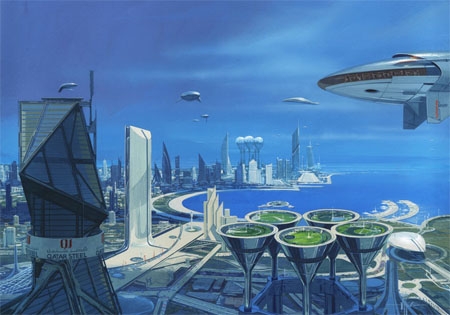The Arabian Gulf nation was awarded the rights to hold football's foremost competition after promising huge investment in stadiums, transport and hospitality – a mouth-watering prospect for contractors.
But major deals have so far been scarce.
"At the time of the award, everyone expected the market to explode at any moment but now we see ourselves in a very intense planning phase," said Martin á Porta, the chief executive of Siemens' unit in Qatar.
Nevertheless, Siemens is seeking to double its workforce in Qatar to 400 staff in the coming two years to prepare for growing business.
Like Abu Dhabi, Qatar had, prior to the award of the World Cup, committed to a Vision 2030 – a growth strategy for the coming two decades. Some projects that were part of the strategy are now likely to be brought forward to be ready for the event.
Once the decision-making process is complete, Qatar will begin churning out tenders.
"For the contractors and the suppliers, the big market increase is yet to start. I expect a strong ramp up during next year and the year after and potentially the peak of that could be in the years 2018 [and] 2019," said Mr á Porta.
The biggest prize will be a US$35 billion (Dh128.55bn) metro and railway network that will span the peninsula.
In 2008, the sovereign wealth fund Qatari Diar choose Germany's Deutsche Bahn to build more than 350km of metro lines in Doha and railroads of equal length stretching across Qatar. Some construction contracts have already been handed out but many more are still to come.
Siemens has made a bright start in the race for orders, securing a contract worth more than €100 million (Dh451.5m) for a tram line on the university campus of the Qatar Foundation late last month.
Traditionally, the German company's main focus in Qatar has been on building and supplying power plants and electricity distribution networks but that picture is changing.
"The market will show a better balance between energy and infrastructure," said Mr á Porta.
Crucial to the tournament will be the construction or expansion of 12 state-of-the-art football stadiums.
As the tournament will be held in the summer, the venues will be equipped with advanced cooling systems able to fend off the scorching Gulf heat. The electricity needed for the air-conditioning will be generated from solar power.
The competition's centrepiece will be the Lusail Iconic Stadium, an 86,000-seat arena surrounded by a moat with colourful honeycomb roofing shielding the approaches from the sun.
The tender for the first stadium, most likely a 45,000-seat venue in Doha's Education City, will be issued next year, Mr á Porta said.
"Qatar has chosen to prepare one stadium a bit earlier and use it to optimise the technology," he said.
Siemens, which has supplied stadium technology for the past two World Cups, is hoping to benefit from Qatar's spending and is preparing a bid for the first project.
More so than the ultra-modern railway system, it will be the space-age stadium designs that define the first World Cup on Arab soil.
The National
2 August






















































